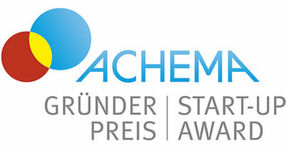What do EU citizens think about nanomaterials?
Survey shows that citizens demand better labelling of everyday products containing nanomaterials and increased awareness of the risks and benefits of products containing nanomaterials
Advertisement
A study, commissioned by the EU Observatory for nanomaterials (EUON), measured and analysed how citizens in Austria, Bulgaria, Finland, France and Poland perceive nanomaterials and their potential risks to our health and the environment.

Symbolic image
seagul, pixabay.com
It found that despite manufactured nanomaterials being a common part of our everyday lives, general awareness about their nature, characteristics and properties is low. However, the level of awareness has increased compared to earlier surveys, and is expected to continue increasing in the future.
The study identified some concerns over the safety of some established and newer applications of traditional and more advanced nanomaterials. The general risk perception of nanomaterials was nevertheless lower than for other modern trends and technologies.
The results confirm that concerns often correlate with a lack of awareness of nanomaterials. People who know more about nanomaterials tend to be less concerned about the safety of using them in everyday products.
The majority (87 %) of study respondents want to know if the product they are buying contains nanomaterials. This information could be included, for example, on a label or packaging. They indicated that it would be particularly important to have the information on the product label for food and food-related products, medicines, cosmetics, clothing and textiles, toys, and detergents or household products.
The key recommendation of the study is to increase European citizens’ awareness of nanomaterials, including their benefits and risks, to ensure the public can make informed choices. This is to be achieved through sharing of information and communicating the benefits and safety aspects of nanomaterials.
The study also recommends expanding the survey to all 27 EU countries. It outlines a need for further research to determine the most appropriate type of labelling for products containing nanomaterials and whether existing labelling requirements would need to be adapted. If implemented, the recommendations aim to support authorities and regulators to improve the information and communication on nanomaterials. This will enable consumers to better understand how nanomaterials and nanotechnology are used in different products and address important information required by the general public to better understand the benefits and risks of nanomaterials.

































































